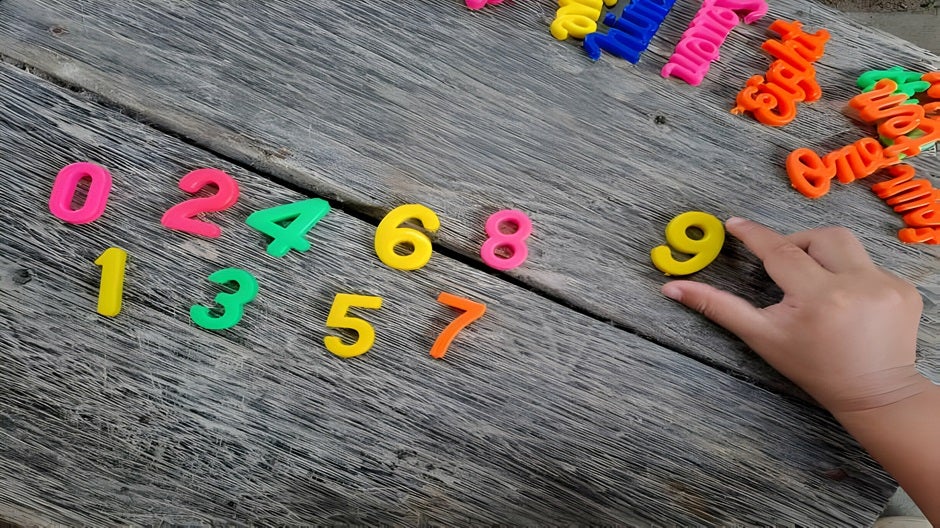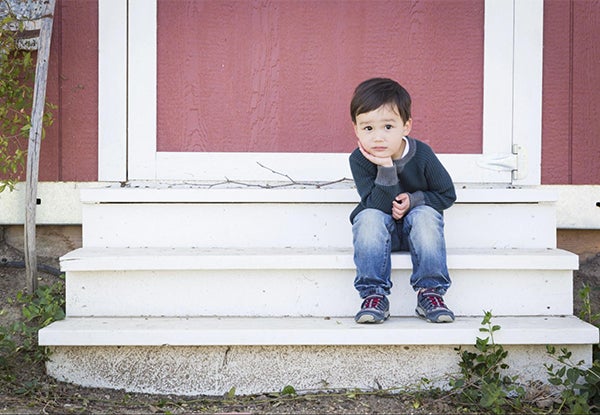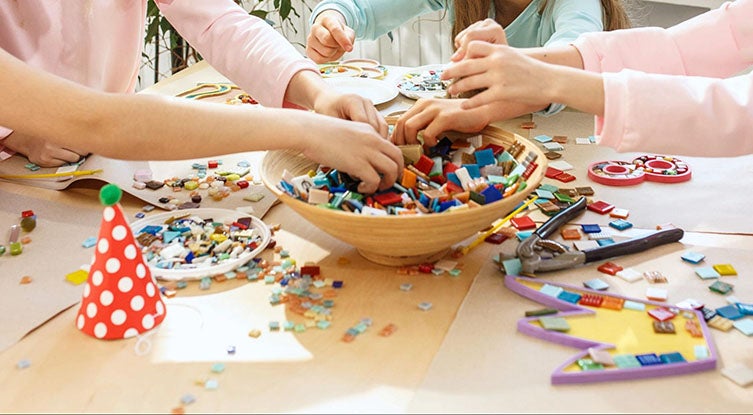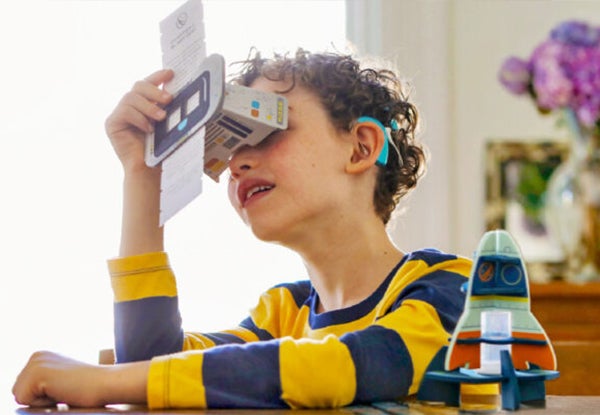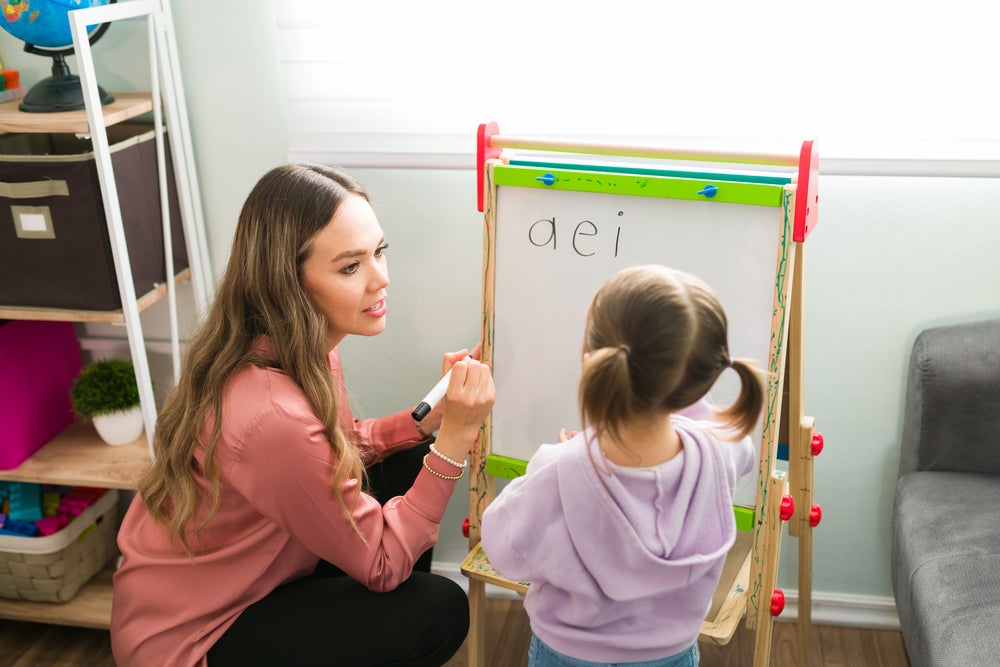As a parent, you know you should get your kids to love reading. With all the research about reading and child development, it can feel overwhelming. But, just because it is important, it does not mean it has to be difficult. Keep reading for easy ways to bring reading into your day-to-day lives.
Scatter books around the house
Research has shown that growing up in a home filled with books has more impact on a child’s level of education than their parents’ profession, level of education, or class. Studies have also shown that when kids grow up in book-oriented environments, they are more likely to grow into individuals with a lifelong love of reading.
Making your home “book-oriented environment” doesn’t necessarily mean you have to give up an entire room to dedicate to books. You can achieve the same, or better, results by scattering books around your home. Make reading materials accessible to everyone in your family by incorporating your own or library books into all aspects of your family’s life. Have some cookbooks visible in your kitchen, have some books related to trucks and cars sitting by your child’s toy trucks, and have some books related to art, like Mouse Paint and The Dot, with your child’s art supplies. Books can suffer from “out of sight, out of mind”, so make sure they are visible and easy to access. Another great way to keep books relevant in your home, is to try rotating books out seasonally while keeping favorites handy.
Take a trip to the library
The library is a great place to visit for many reasons. We especially love this quote by President Barack Obama (then Senator Obama), “At the moment that we persuade a child, any child, to cross the threshold, that magic threshold into the library, we change their lives forever, for the better.“
If your child isn’t a bookworm (yet!), they will most likely find a trip to the library boring. Here are some things you can do to really bring excitement to the experience:
- Talk about the library and the books you are excited to find there. Once your child joins the discussion, you know you’ve made going to the library seem like an adventure.
- Make or get your child a special book bag so they can imagine the fun of filling it up with books! If you are looking for a fun craft activity, you can get your child to help decorate their book bag.
- Check out the resources and events offered at your local library and plan your visit accordingly. If your child isn’t excited about the books, they’ll love the story times, crafts, and other activities that libraries have.
- Help your child get their very own library card. When kids have their their own library card, they start to realize that reading is a special treat. And having something with their own name on it gives them an extra sense of independence.
- Encourage your child to chat with your local librarian. If you have a reluctant reader on your hands, your local librarian can help them find books on topics they already love.
- Let your child explore! Give your child the freedom to find and choose the books they want to read. It will give them a sense of ownership of their reading habits.
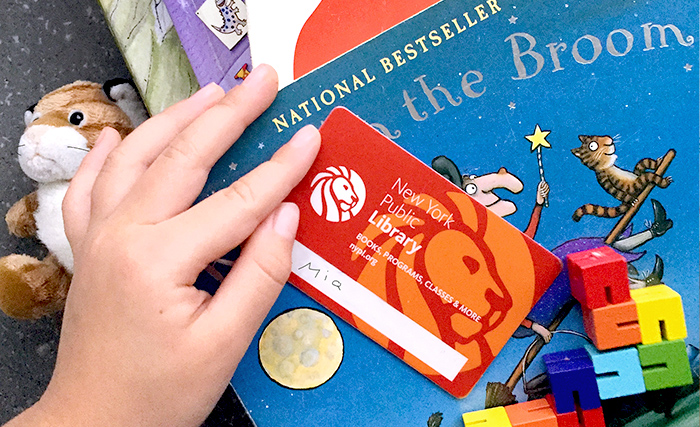 Getting your child a library card helps them feel a sense of ownership over their reading habits.
Getting your child a library card helps them feel a sense of ownership over their reading habits.
Model what it means to be a reader
Let your kids see you enjoying reading (this tip is our favorite!). In a recent interview with The Atlantic, Pamela Paul and Maria Russo, editors of the New York Times Book Review and authors of How to Raise a Reader, talked about how the research linking reading to academic success, testing success, executive function, and emotional well-being can cause parents to inadvertently frame reading as an obligation. “’Kids basically perceive that [obligation] right off the bat — children know, for example, if you’re trying to get them to eat something that’s good for them,’ Paul said; ‘the aim is to present reading not as “spinach,” but as “chocolate cake.’”
One way you can present reading as chocolate cake is to enjoy it yourself! Russo has a great parenting hack that we love. “When I’m sitting there on my couch, reading a book, and my kids are doing their own thing, I like to think, ‘I’m parenting right now—they can see me reading this book.’” A couple of other easy ways to share the excitement of reading is to talk about books around the dinner table. You can also dedicate ten minutes a day as your family’s special time to look at books. As a family, share the stories you are reading to make a big part of your home.
Do your kids love reading? If they are asking for the same story every night, that’s totally ok — read this article to find out why.


